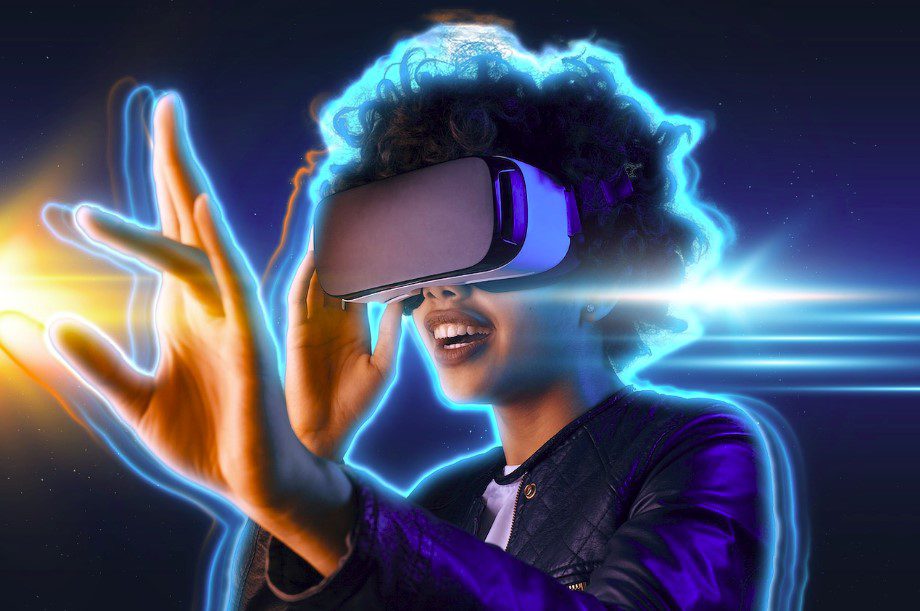Generation Z, also known as Gen Z, Zoomers, or the post-millennial generation, is the generation born between 1995 and 2009. Aged between 14 and 28 years old, and besides Generation Alpha, represent the most ethnically and culturally diverse cohort in history.
Zoomers are still a young generation and are entering or already in their early adulthood.
With their unique experiences and perspectives, Generation Z is shaping the world in new ways. As the first generation to grow up entirely in the digital age, they have unique attitudes, behaviors, and expectations that set them apart from previous generations.
They are highly tech-savvy and value the power of social media for both personal and professional communication.
In this article, we will explore what sets them apart from the previous generations, and their impact on society.
Why Generation Z?

The term “Generation Z” was first coined by researchers Neil Howe and William Strauss in their 1997 book “The Fourth Turning.” The two predicted the cohort would focus on individualism, and a strong reliance on technology.
The name “Generation Z” also reflects the fact that this cohort is the last in the alphabetically named generations. They come after the “Baby Boomers” and “Generation X” before them, and Y or “Millennials” who preceded them.
Additional names suggested for this generation include “iGen” (reflecting their affinity for technology and the internet), and “Centennials” (as they are the first generation to come of age in the 21st century). Nonetheless, “Generation Z” remains the most commonly used term.
The Parents of Generation Z
The parents of Generation Z are typically members of Generation X, born roughly between 1965 and 1979. Like their children, Generation X parents grew up in a rapidly changing world marked by social and technological upheaval.
They are often described as independent, skeptical, and adaptable. As such, they have raised their children to be self-sufficient, resilient, and open-minded.
Generation X parents have also played a significant role in shaping the values and attitudes of their children. They are often more liberal and progressive, and have instilled in their children a strong sense of social justice. Xers also wants iGeners to make a positive impact on the world.
Xers also encourage their children to embrace technology and innovation, and to be comfortable navigating a rapidly changing world.
However, like any generation, Generation X parents are not homogeneous, and there is significant diversity in their values, beliefs, and parenting styles. Some may be more traditional or conservative in their approach to parenting, while others may be more permissive or hands-off.
Additionally, many Generation Z children are being raised by single parents or in non-traditional family structures, which can have a significant impact on their experiences and values.
Traits, Trends and Values of Zoomers

Generation Z is a complex and diverse group, and as such, it is difficult to make blanket statements about its traits and values.
However, some general trends and characteristics have emerged from recent research and analysis.
Zoomers and Technology:
One of the defining characteristics of Zoomers is their digital literacy. They have grown up with smartphones and social media as integral parts of their lives. This makes them highly adept at using technology to communicate and consume information.
They are the first generation to have grown up with widespread access to the internet and social media platforms. As such, are often seen as highly connected and technologically savvy.
In any case, they have grown up in a world where technology is ubiquitous and integrated in their lives.
Zoomers are also highly visual learners and prefer easily digestible content, such as videos and images. They have grown up in a world where they are constantly exposed to visual content, from television shows and movies to social media platforms like Instagram and TikTok. As a result, they have become accustomed to learning and consuming information through visuals.
Consequently, they have developed short attention spans, having been raised in an era of instant gratification. Because they can access information and entertainment quickly and easily, they, therefore, prefer content that is easy to consume.
Zoomers and the World:
They are socially conscious, with a strong desire to make a positive impact on the world. The cohort is driven by a sense of purpose and meaning. They are also highly individualistic and value personal expression and authenticity.
Another notable characteristic of Generation Z is its pragmatism and adaptability. Zommers have grown up in a world of rapid change and disruption and are comfortable with uncertainty and ambiguity.
Zoomers, Education and Work:
They are also adept at navigating complex systems and technologies and are quick to learn and adapt to new environments. Perhaps this explains why they are highly educated , with many pursuing higher education and career opportunities.
Another key difference is their approach to work and career. Gen Z is highly motivated by purpose and meaning. Thye prioritize work-life balance and flexibility over job security. Like their fathers, they are highly entrepreneurial, with many starting their own businesses.
Finally, Generation Z is often described as pragmatic and financially cautious. Many Zoomers came of age during or in the aftermath of the global financial crisis of 2008. As such, they are seen as more risk-averse and focused on financial stability and security.
The Future for Generation Z
As a relatively young generation, their future will depend on various factors such as economic, political, and technological changes.

Gen Z and the Metaverse
The Metaverse is a term used to describe a collective virtual shared space that is created by the convergence of physical and virtual reality. It is a fully immersive environment where users can interact with each other and with virtual objects and spaces in real-time.
With the rapid advancements in technology, the development of the Metaverse is becoming increasingly feasible, and Generation Z is expected to be at the forefront of this revolution. Of course, we should not forget the younger Alpha generation, which is also technologically driven.
One of the reasons why Generation Z is well-suited to drive the development of the metaverse is their familiarity with digital communication and virtual environments. They have grown up with social media, online gaming, and other digital platforms, and are comfortable with the idea of interacting with people and objects in virtual spaces.
This familiarity with technology means that they are likely to be early adopters of metaverse technologies and will play an active role in shaping its development.
Another reason why Generation Z is important for the development of the metaverse is their creativity and innovation. Many members of this generation are interested in fields such as game design, virtual reality, and augmented reality. They are also more likely to be tech-savvy and adept at coding and programming. As a result, they are well-positioned to develop new applications and technologies that can be used in the metaverse.
Gen Z and AI
As digital natives, Zoomers are accustomed to interacting with AI-driven technologies such as voice assistants, chatbots, and recommendation algorithms. They are likely to play a significant role in the further development of AI.
One area where Generation Z is likely to have a significant impact on AI is in the field of ethics. As AI becomes more powerful and pervasive, there are concerns about its impact on society, including issues related to bias, privacy, and accountability.
Generation Z, with its strong sense of social justice and concern for the environment, is likely to be highly attuned to these issues and will be a driving force behind efforts to ensure that AI is developed and used ethically.
This generation is highly entrepreneurial and innovative, and many members are interested in using technology to solve pressing social and environmental issues.
As a result, they are likely to develop new applications and use cases for AI that are focused on addressing these issues.
Additionally, Generation Z is likely to be highly skilled in areas such as data analysis, programming, and machine learning, which are all essential for developing and deploying AI systems.
These skill sets will make them highly sought after by companies and organizations looking to incorporate AI into their operations.
Overall, it is likely that Gen Z will continue to make significant contributions to society and shape the world in the coming decades.





Leave a Reply